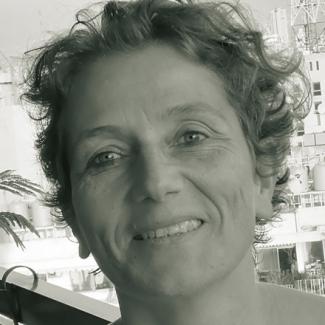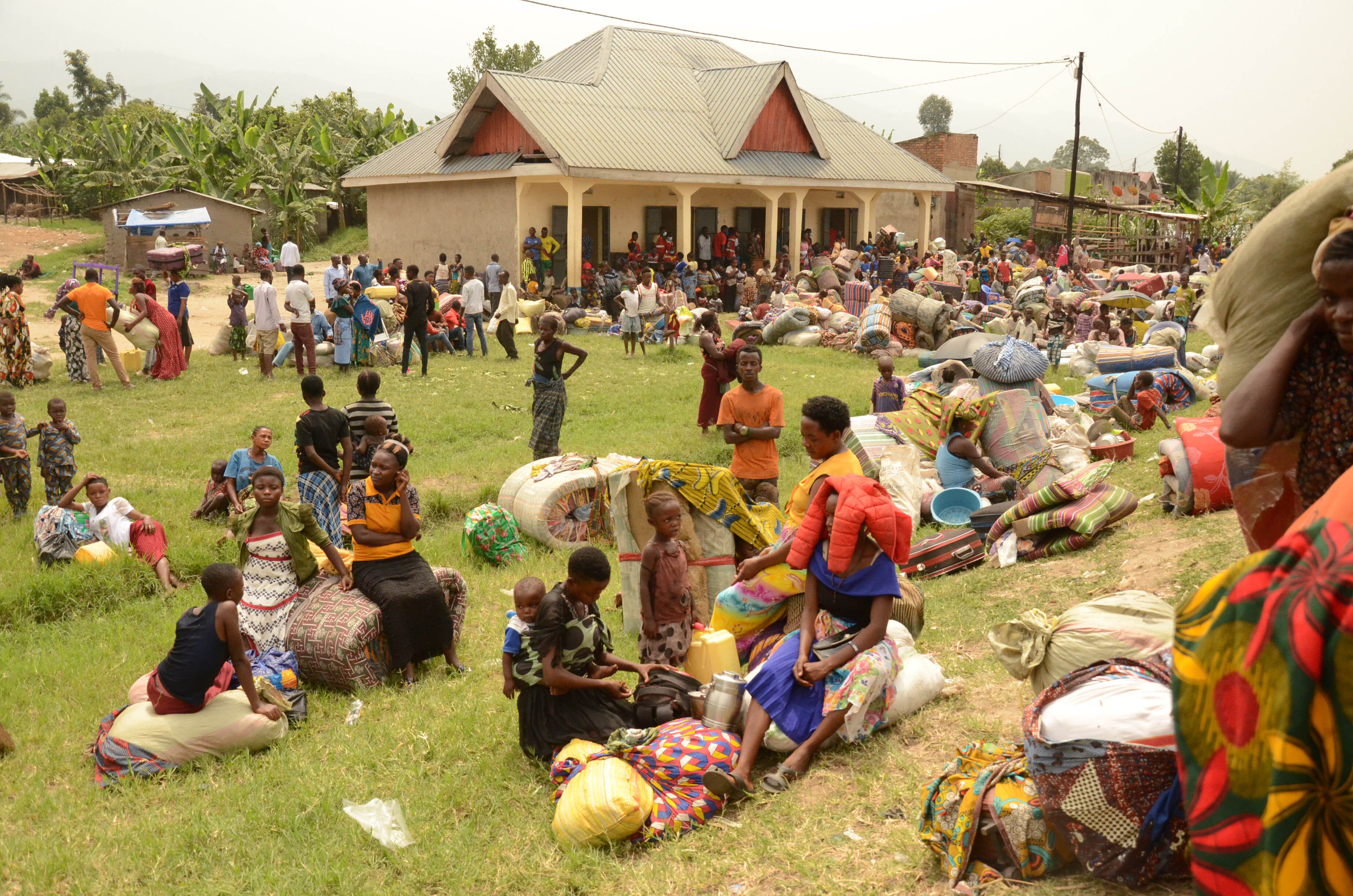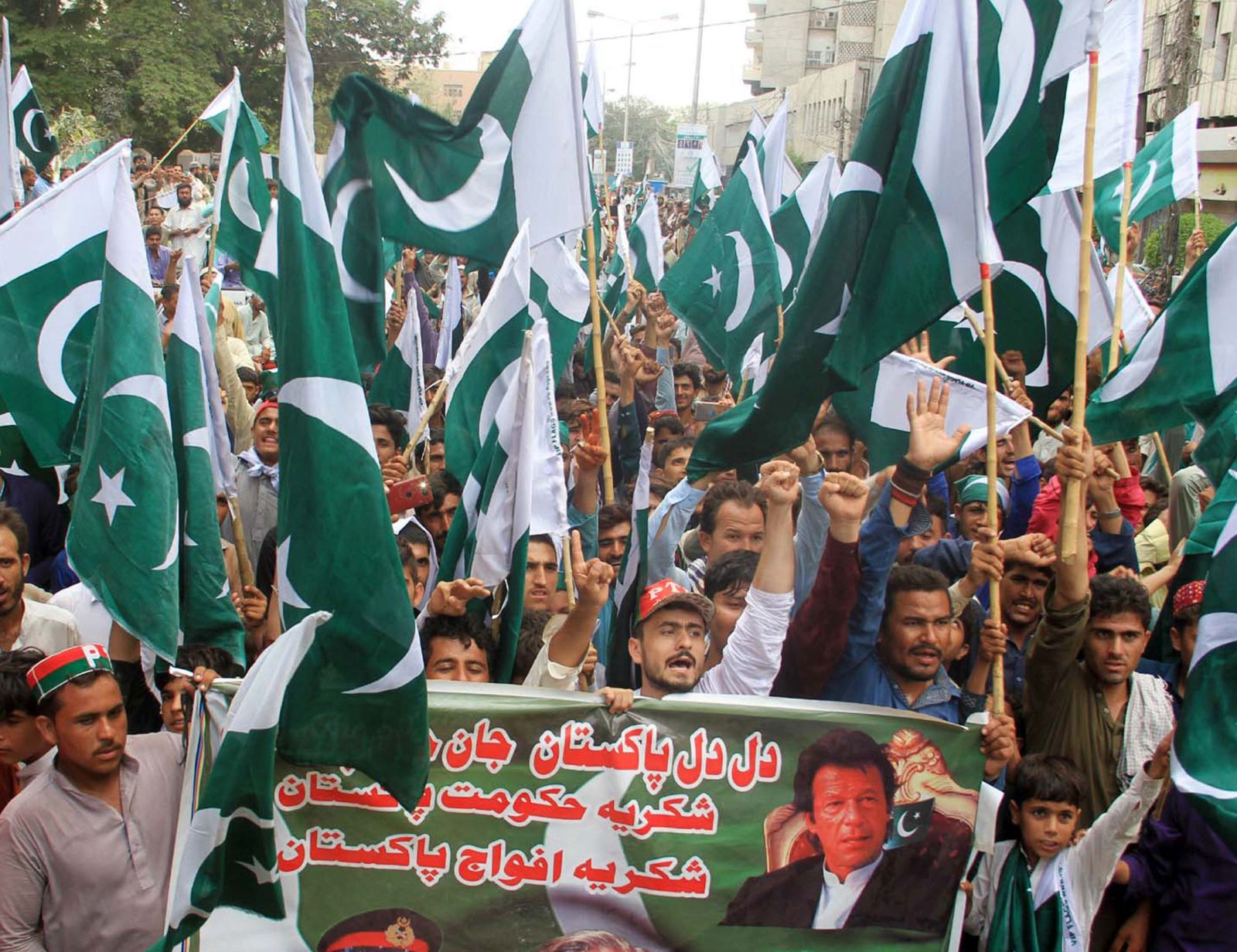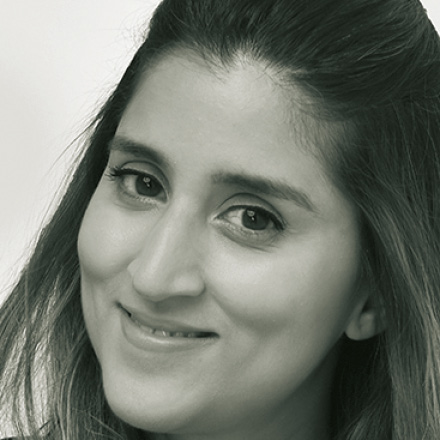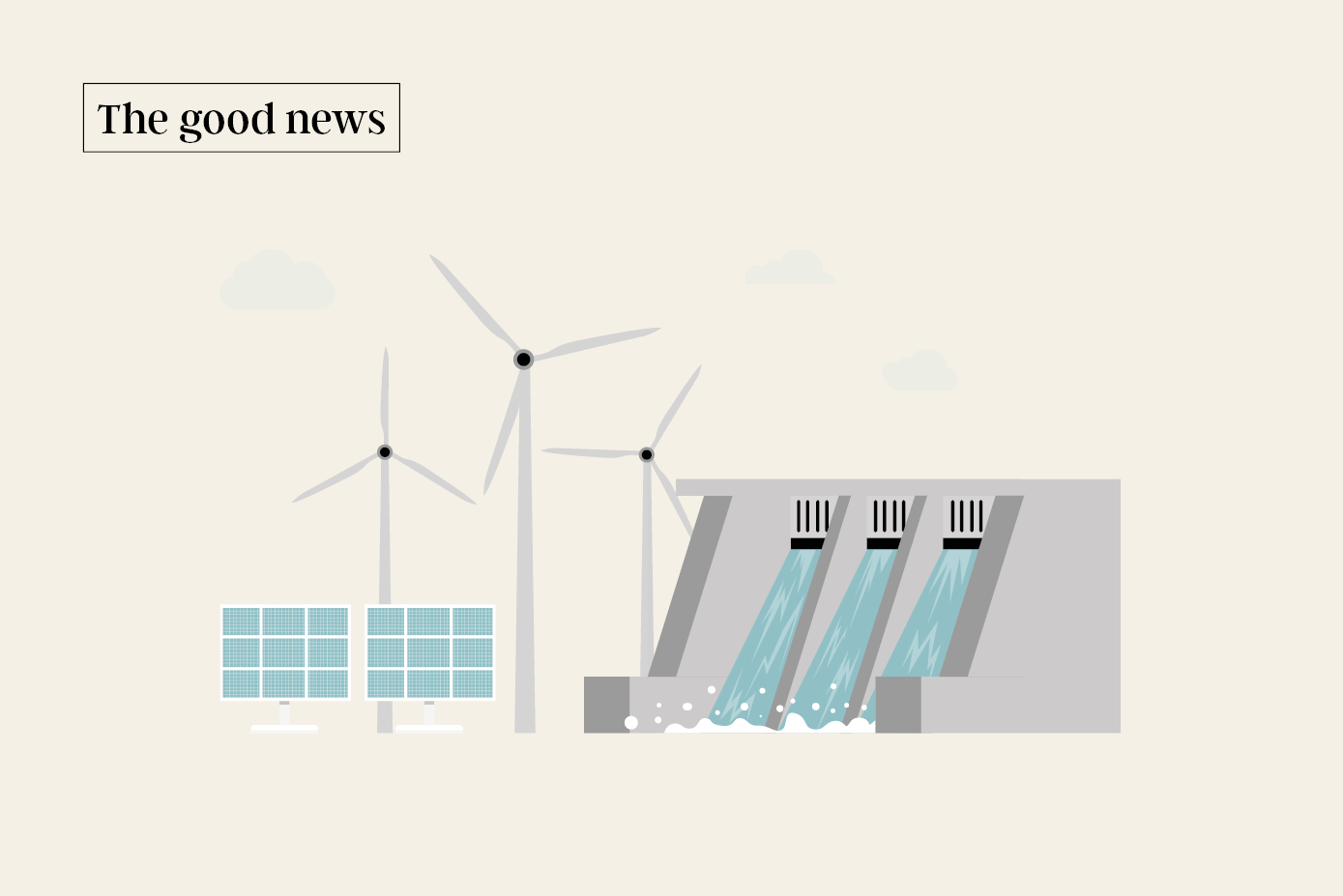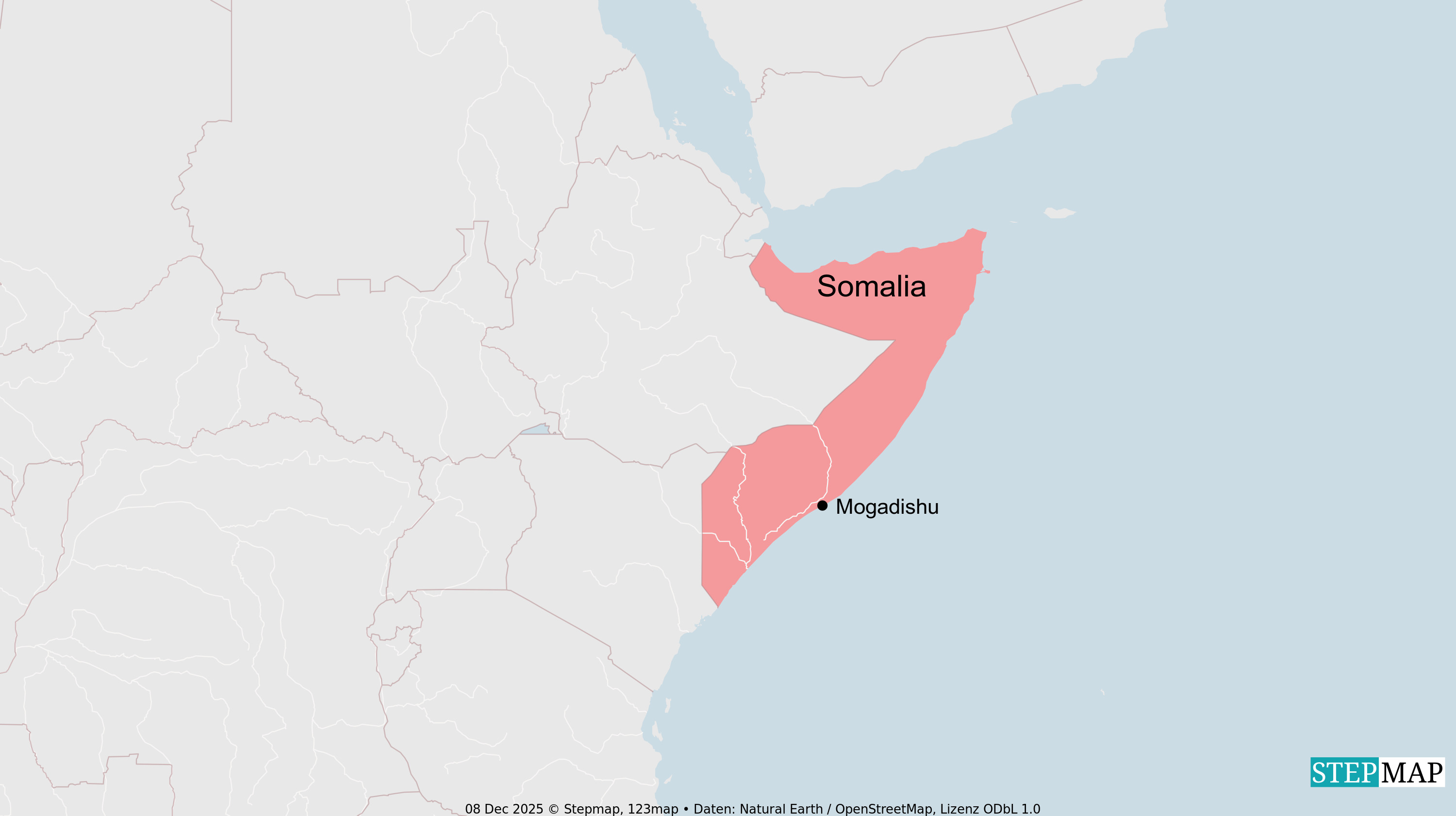Recycling
Bonding through waste separation
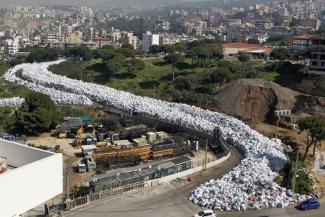
The town of Bar Elias is located about 12 kilometres from the Syrian border. A recycling task force recently started to work here. It includes refugees who live in a camp as well as Lebanese residents from one of the town’s neighbourhoods.
In this context, 53 families from both communities have begun to sort their domestic plastic and metal waste. They sell the recyclables, and the proceeds will be used to fund an investment for the benefit of both Syrians and Lebanese. Proposals include repainting the school and repairing the public water tap.
Approximately 15 families who fled from the Aleppo area in northern Syria live in what is officially called an “informal tented settlement”. The gravel paths between the huts are well maintained, and there is no rubbish lying about.
Amina Hussaini lives here. The young woman says that separating waste has become a family routine. She admits that her children at first tended to keep the plastic and sell it, in order to earn money for ice cream and sweets. But she says that everything is now working smoothly.
Along the road from Syria, a sign at the entrance of Bar Elias reads: “Population 50,000”. It only refers to the town’s Lebanese residents. In recent years, many Syrians have joined them. The mayor’s office puts their number at approximately 70,000. According to the UN Refugee Agency (UNHCR), about 35 % of the over 1 million Syrian refugees registered in Lebanon are staying in the Bekaa area.
The region was always considered poor and underdeveloped. The local people make their living primarily from agriculture and the cross-border trade with Syria. Rapid population growth has exacerbated competition for resources.
Fayez Okasha, a native of Bar Elias who is taking part in the recycling project, says that job prospects and infrastructure have not kept up with the influx of people: “As a result, many Lebanese now consider the Syrians a burden.”
Medyan Al-Ahmad, who has lived in a camp near Bar Elias for four years, explains how problems arise between Lebanese residents and refugees: “Rubbish from a refugee camp will end up on neighbouring Lebanese property, or Lebanese people complain about the smell from the sewer of a nearby camp.”
The recycling project emerged incrementally. Alaa Alzaibak and Medyan al-Ahmad are both active in the Syrian organisation Basmeh and Zeitooneh. This NGO provides humanitarian aid and is assisting refugees and host communities in regard to education, social services and culture. One of its partners is the German peace organisation forumZFD, which is supporting the project (also see D+C/E+Z 2014/05, p. 158).
“Our goal is to ease tensions between Syrians and Lebanese in Bar Elias and to bring the two groups closer together,” Alaa says. An undertaking that is inspired by the needs of both communities and allows both to benefit.
In the project’s planning stage, activists from Basmeh and Zeitooneh did surveys to find out what Syrians and Lebanese worried about most. Both groups indicated jobs and better infrastructure the top priorities. Several proposals were made, including repairing pavements, creating more green spaces in the town, planting a garden and starting a recycling project, which was ultimately done.
The NGO activists want to slowly withdraw from the project and let the task force take full control. According to Alaa, the project is proving successful: “The Lebanese and Syrian residents of the neighbourhood are talking to each other and trying to solve problems together.”
Waste disposal is a hot-button issue in Lebanon. Indeed, mountains of rubbish in the streets of Beirut made international headlines last summer. The waste crisis, however, has nothing to do with Syrian refugees. The real reason is that there is no national plan for waste disposal. Since Lebanon’s civil war ended in 1989, no national government has seriously tackled the issue.
In the Bekaa Valley, the refugee crisis means that overburdened municipal authorities must rise to additional challenges. In Bar Elias, the landfill outside of town has been receiving ever more rubbish. The waste is not sorted and dumped in the open on untreated soil.
Yahya Faris managed to get the municipal administration to put a large waste container in front of the camp where he lives in Bar Elias. However, he reports that the waste is not collected reliably. Sometimes it is picked up every 10 days, sometimes as infrequently as every two weeks. Occasionally, there is more rubbish than fits into the container, causing the Lebanese neighbours to complain.
Moreover, Faris objects to trash burning, which keeps occurring at the landfill. He says that very unpleasant smoke blows into the camp. He worries about his children’s health.
In 2015, an investigation by the UN Office for the Coordination of Humanitarian Affairs (OCHA) showed that Bar Elias was among the Lebanese towns that were most at risk of environmental and ecosystem damage. The lack of proper waste disposal and waste water treatment is compounding matters, and so is the extensive use of land for settlement purposes. Soil, groundwater, nature and people’s health are being strained.
Lebanon’s Ministry of Environment is promoting far-reaching projects to help the towns in question. International donors too are increasingly responding to the needs of host communities, whereas they had initially only focused on the plight of refugees when the Syrian crisis began. In Bar Elias, the EU is financing the up-grading of the landfill, including the establishment of recycling and composting plants.
According to the mayor’s office, 70 % of the town’s waste will be recovered in the near future, and the rest will be properly disposed of. The new facilities will start operating by the end of 2016. Both Lebanese and Syrian people in the region hope that they will not only improve the waste situation, but also create new jobs.
Mona Naggar is a journalist and media trainer. She lives in Beirut.
mona.naggar@googlemail.com
Sources
Environmental assessment of the Syrian conflict EASC & priority interventions 2014:
http://www.undp.org/content/dam/lebanon/docs/Energy%20and%20Environment/Publications/EASC-WEB.pdf
Updated factsheet:
http://www.moe.gov.lb/getattachment/dd4e6574-a959-47c1-b2ed-1fc1847b7515/Updated-Fact-Sheet-December-2015-Environmental-Ass.aspx
